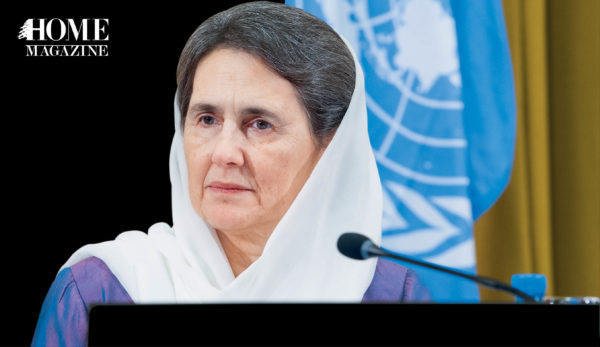Roberto Khatlab is the director of the Latin American Studies and Cultures Center (LASCC) at the Holy Spirit University of Kaslik. Khatlab has written 22 books, published in Brazil and in Lebanon, in Portuguese, Arabic, French, English and Spanish. His last book was published in 2015, in Portuguese (and is in the process of translation into Arabic) The travels of D. Pedro II*: Middle East and North Africa, 1871 to 1876, which recounts the travels of the Emperor of Brazil, who visited Egypt, Lebanon, Syria and Palestine.
The book is based on the diaries of the emperor. It is interesting to note that Dom Pedro II used to speak and write Arabic, among other languages. In this book Khatlab presents D. Pedro II as the pioneer of Brazil-Middle East relations and as possible trigger of the great Lebanese emigration to Brazil. Roberto is the author of the first complete guide of Lebanon in the Portuguese language Lebanon: An Oasis in the Middle East. A touristic, historical, archeological, cultural and religious guide”. He is also the author of books on the Eastern churches and Arab Christians, with various editions published in Brazil. Roberto Khatlab, was born in Brazil in 1960, a naturalized Lebanese. He studied theology and oriental philosophy within the prism of the history of Eastern religions, history of emigration-immigration, particularly of Lebanese in Brazil and Brazilian-Lebanese in Lebanon.
He studied in Brazil and at some point decided to get to know the Middle East closely. He arrived to Lebanon in 1983 and decided to stay in the country. He started studying and learning about the Brazilian community in Lebanon, formed mostly by bi-national, Lebanese-Brazilian. This community is now estimated to have 15,000 individuals. Khatlab also studies and publishes on the Lebanese emigration in Brazil. Khatlab loves Lebanon and would like Brazilians to learn gallantry from Lebanese people who also should be united as Brazilians.
As a great master of Lebanese emigration to Brazil, Khatlab explains that Lebanese people are marked by a real odyssey; full of travels and adventures, which makes their stories wider than their territory. They were and are on all the continents, in more than 60 countries and the book of “Mahjar” (Emigration) or “Djaliya” (Diaspora) has been constantly updated since the 19th century. The story of emigration was caused by oppression, despotism, feudalism, civil wars, massacres, economic, demographic and political problems, religious differences and insecurity. Noting that migrants are one of the “pillars” of the Lebanese economy, as they send billions of dollars annually to their families and to investments.
“Lebanese people are marked by a real odyssey; full of travels and adventures, which makes their stories wider than their territory”
Many Lebanese in times of oppression were led to take the route of emigration and as they arrived in Brazil, a lot of them concentrated in Rio de Janeiro and even more in São Paulo. But overall the Lebanese spread throughout Brazil, from north to south, east to west, starting with Muscat, connecting cities to villages and distant regions.
It was hard to pass by a village that would not have “Salim’s” pharmacy, small market or the shop. All of them have worked hard and with a lot of dynamism achieved an important family status, among many, we can mention the Jafet family who created the Jafet Group, embracing commerce, industry, banking, metallurgical, and transportation in Sao Paulo. They were the second most influential business group in Brazil, the first being the Matarazzo family, from Italian background.
Lebanese families have invested in their children’s studies and today the descendants are in all areas, including politics. An amazing 6% of the National Congress is made of Lebanese descent including Michel Temer, vice president of Brazil at the time, and now the interim president. This shows the fusion of Lebanese in Brazil. It is impossible to deny how much they have contributed to the formation of the Brazilian identity.
* (Publisher Benvirá (Sami). São Paulo)

































